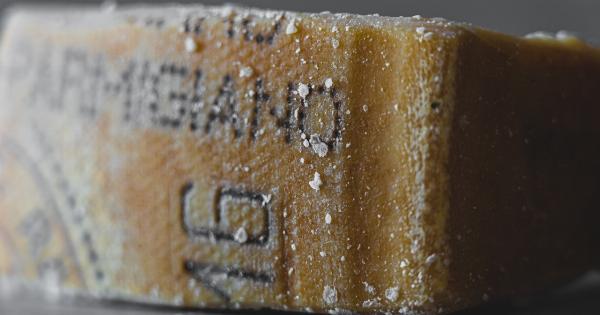Heart failure and hypertension are two common cardiovascular conditions that affect a significant portion of the population. Both conditions require careful management and lifestyle modifications to ensure optimal health.
One such lifestyle modification that is often recommended is reducing salt or sodium intake. This article will explore the impact of salt on patients with heart failure or hypertension and discuss why it is important to limit salt consumption.
The Role of Salt in Heart Failure
Heart failure occurs when the heart is unable to pump enough blood to meet the body’s needs. This can happen due to various reasons, including high blood pressure, coronary artery disease, or a weakened heart muscle.
Excessive salt intake can further worsen the symptoms of heart failure by causing fluid buildup and increasing blood pressure.
When we consume too much salt, our body retains water to maintain a balance of electrolytes. This excess water retention puts a strain on the heart, which is already struggling to pump blood effectively.
The increased fluid volume can lead to edema, or swelling, in various parts of the body including the legs, ankles, and abdomen. This fluid buildup can exacerbate shortness of breath, fatigue, and other symptoms associated with heart failure.
In addition, high salt intake can also contribute to high blood pressure, which is a common underlying cause of heart failure. Salt is made up of sodium and chloride ions. Sodium, in particular, has a significant impact on blood pressure regulation.
When we consume too much sodium, it can lead to increased blood volume and vasoconstriction, both of which raise blood pressure. For individuals with heart failure, maintaining optimal blood pressure is crucial to prevent further damage to the heart.
The Connection between Salt and Hypertension
Hypertension, or high blood pressure, is a chronic condition characterized by elevated blood pressure levels. It is a significant risk factor for heart disease, stroke, and other cardiovascular complications.
Salt intake plays a pivotal role in the development and management of hypertension.
Most people with hypertension are salt-sensitive, meaning that their blood pressure increases significantly in response to salt consumption.
The exact mechanism behind salt sensitivity is not fully understood, but it is believed to involve the kidneys’ ability to regulate sodium excretion. When salt intake is high, the kidneys struggle to excrete the excess sodium, leading to fluid retention and increased blood volume. This, in turn, raises blood pressure levels.
Furthermore, high salt diets can also impair the function of the endothelium, the inner lining of blood vessels. The endothelium plays a crucial role in maintaining normal blood flow and regulating blood pressure.
Excessive salt can damage the endothelial cells, promoting inflammation and reducing their ability to produce nitric oxide, a substance that helps dilate blood vessels. The impaired endothelial function contributes to the development and progression of hypertension.
How to Reduce Salt Intake
If you have heart failure or hypertension, it is important to take steps to reduce your salt intake. Here are some strategies that can help:.
1. Read food labels: Pay attention to the sodium content listed on food labels. Choose low-sodium or sodium-free options whenever possible. Be mindful of hidden sources of sodium, such as canned soups, processed meats, and condiments.
2. Cook at home: Preparing meals at home allows you to have better control over the amount of salt used in your dishes. Experiment with herbs, spices, and other flavor enhancers to reduce your reliance on salt for taste.
3. Limit processed foods: Processed and packaged foods are often laden with salt to enhance flavor and extend shelf life. Opt for fresh, whole foods whenever possible to minimize your salt intake.
4. Be cautious with condiments: Many condiments, including ketchup, soy sauce, and salad dressings, are high in sodium. Look for low-sodium alternatives or use them sparingly.
5. Choose unsalted snacks: Instead of reaching for salty snacks like potato chips or pretzels, opt for healthier alternatives like fresh fruits, unsalted nuts, or air-popped popcorn.
6. Rinse canned foods: If you use canned beans or vegetables, rinse them thoroughly before cooking to remove excess sodium from the canning liquid.
7. Eat out consciously: When dining out, ask for dishes to be prepared without added salt or request sauces and dressings to be served on the side. This way, you can have better control over the amount of salt consumed.
8. Increase potassium intake: Potassium helps counterbalance the effects of sodium on blood pressure. Include potassium-rich foods like bananas, avocados, leafy greens, and sweet potatoes in your diet.
9. Gradually reduce salt: If you are accustomed to a high-salt diet, start by gradually decreasing your salt intake. Allow your taste buds to adjust to lower levels of salt over time.
10. Seek support: If you find it challenging to reduce your salt intake, consider consulting a registered dietitian or nutritionist who can provide guidance and personalized meal plans.
Conclusion
Both heart failure and hypertension require careful management to prevent complications and promote overall well-being. Limiting salt intake is an essential component of lifestyle modifications for individuals with these conditions.
Excessive salt consumption can worsen symptoms, increase fluid retention, and raise blood pressure levels. By being mindful of salt content in food, cooking at home, and making healthier choices, patients can effectively reduce their salt intake and improve their cardiovascular health.

























